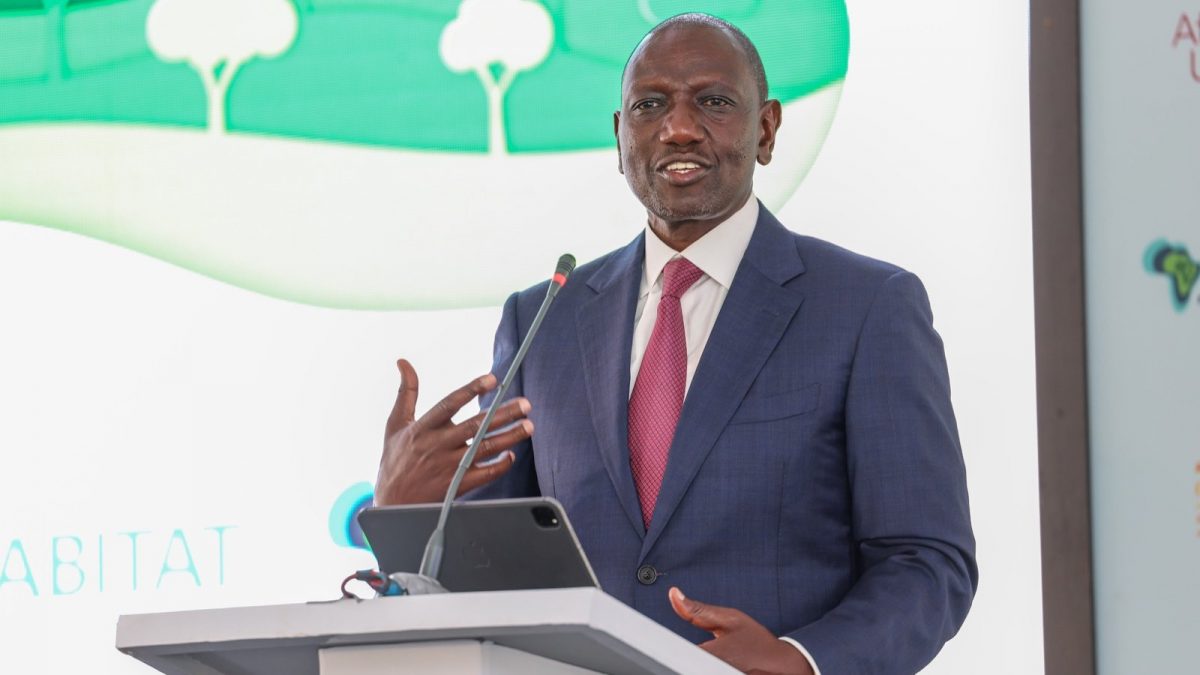Poor governance impacts adaptation to climate change

World’s leaders will meet in Egypt, from November 6 to 18 for COP 27. At the summit, nations will deliberate on actions for achieving the climate goals set in the Paris Agreement.
The meeting is a follow-up to the decisions made at COP 26 in Glasgow. Countries are required to show their commitment and the accomplishments made at COP 26. The COP 27 discussions will include effective governance of climate change among other topics.
One of the biggest problems facing humanity today is climate change, which has an impact on every nation and has the potential to destroy ecosystems. Given the special dependence of many Africans on climatic systems and a general lack of adaptation capacity, a 2019 BBC report predicts Africa to be the continent most affected by climate change.
News of climate related disasters wreaking havoc on ecosystems has taken over local and international headlines. Health is already being impacted by climate change in a variety of ways manifested by extreme weather events such as storms and floods, heatwaves, the disruption of food systems, increase of zoonoses and food, water and vector borne diseases and mental health problems.
The continent continues to fall short of keeping these promises to the daily, lived experiences of ordinary people despite enormous progress made to ensure greater transparency of and accessibility to systems and structures of governance, as well as joint efforts towards eradicating poor governance.
The vast majority of countries on the continent still struggle with pervasive corruption, which breeds bad governance and manifests itself through political and economic efforts to enrich the elite. Similarly, weak governance practices severely under-serve and stunt populations.
Millions of Africans are at risk due to the environmental threat posed by climate change. Beyond the apparent effects on agriculture, this affects crucial parts of civilization like infrastructure, human health and migration. Overly, the agriculture, forestry and fisheries sector is mainly credited with contributing to Africa’s economy with statistics showing that it employs up to 65 per cent of all working people and contributes for 75 per cent of domestic trade.
A reduction in our continental GDP will be huge and disastrous, just from an agricultural standpoint, if our ecosystems are damaged. Additionally, it will result the emergence of a new category of immigrant known as climate migrants, and the destruction of the very infrastructure that promotes economic mobility.
Governments and citizens must take proactive measures to address the changes that have already happened and are anticipated as a result of climate change. This calls for the development of practical and successful policies that are supported by a strong governance framework. Any society that has a high prevalence of corruption will find it more difficult to effectively implement strong governance and policy measures.
Any government’s capacity to adhere to its own policies is impacted by weak governance, as is the standard of public services and policies. Therefore, it should be underlined that every effort to mitigate and adapt to the effects of climate change should be accompanied by an equal and possibly even more aggressive improvement in governance structures and strong governance initiatives.
Mitigation and adaptation are the two main strategies used to combat the effects of climate change. As defined by UNEP, mitigation is defined as “efforts to limit or avoid emission of greenhouse gases” in general, adaptation describes the actions taken to explicitly lessen the effects of climate change on the environment, community and larger society.
It is crucial that countries endeavour to significantly minimize the presence of poor governance and to uphold good governance principles if livelihoods are to be safeguarded and enhanced, which is what voters expect of the governments they elect.
It is also the responsibility of citizens to act in the interests of their country. Governments and citizens must work together to address the issues that prevent effective implementation of climate-mitigating measures in order to tackle climate change decisively.
— The writer is the Board Chair of the Interfaith Research Panel for Living Planet (IRePLiP) and a Visiting Fellow at the Machakos University –mulilinus@gmail.com












